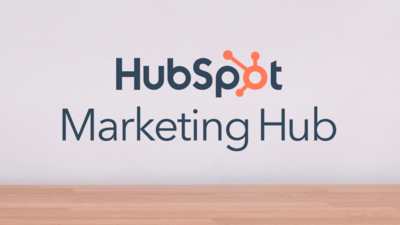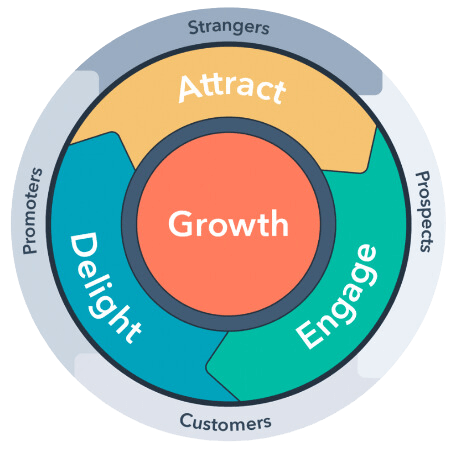How to Scale Your Marketing Efforts with Hubspot Marketing Hub

MLC March Recap: Hubspot Marketing Hub with Devyn Bellamy
Growing your business in an ultra-competitive marketing landscape requires aligning the right tools and expertise all under one roof to scale and automate your efforts.
While knowing where to start with marketing automation software can be a challenge, we spoke with Devyn Bellamy - (Senior Marketing Manager, Partner GTM Enablement at Hubspot) about the magic and utility of the Hubspot Marketing Hub.
Introducing The Hubspot Marketing Hub
In a nutshell, Hubspot Marketing Hub is an all-in-one resource to align all your marketing tools and data - under one roof in real-time.
It supports your Omni and personalized engagement across channels, helping to eliminate constraints, optimize your marketing campaigns, track vital conversions, and build customer loyalty, all tied back into your CRM platform.
While it is not a magic wand, popular features include template forum builders, email landing pages, live chat, social media, ad & content management, marketing automations, and customized workflows and dashboards.
The higher you go within the hub, the deeper the levels of the control and functionality to capture to scale up your rev ops and inbound marketing. While there is no shortage of available features, the Marketing Hub is a tool, and just like any tool, its effectiveness comes from the skills of the person using it.
Luckily you're here for an inside scoop from the pros.
How to Use Hubspot Marketing Hub?
Step 1: Set Up
Always have a plan. If the goal is to capture value, which it often is, don’t create landing pages without an easy-to-use nav site. Take on essential tasks first. Don’t build and scale up trying to capture specific keywords without understanding the promising areas of opportunity.
Also, don’t buy lists - that’s a cardinal sin …
How to Focus Assets and Campaigns on Areas of Opportunity?
The simple answer to this question lies in analyzing your customer journey and finding areas where conversions lack. Ask yourself why people fall out of the funnel and where?
What is a Flywheel?
Effectively understanding the gaps in your customer journey funnel comes from analyzing your flywheel. The Flywheel is a model adapted by HubSpot to explain the momentum you gain when you align your entire organization around delivering a remarkable customer experience by meeting them with the tools and information that match their growth stage.

How to Use A Customer Flywheel?
It’s a remarkable resource for storing and releasing energy — and it turns out that’s pretty important when thinking about your business strategy and efforts. The speed of your flywheel increases when you add force to areas with the largest impact.
When applying force to your flywheel, make certain nothing is opposing it — that means eliminating friction from your business strategy. Friction is anything that slows down your wheel. Poor internal processes, lack of team communication, or misalignment between your customers and your employees are often the most common areas of friction.
Developing Clear Conversion Paths Using Your FlyWheel
Understanding your flywheel allows you to focus on assets and campaigns in key areas of opportunity rather than taking a shot in the dark. This allows you to get people to where you need them by giving them resources like forms or compelling content that aligns with their stage in the buyer's journey and to collect the information you need.
Their interest and commitment lie in their interactions with you, so it pays to pay attention. The bottom line is that the Hubspot Marketing Hub is there to set up an optimal conversion path.
What does this look like in action?
- Creating compelling and valuable content that sends them across the buyer's journey - meeting the person where they are instead of asking them for their money.
- Pull them in with content and push them through awareness, consideration, and decision - looks at their actions using the marketing hub, how they interact with their brand, and how often they are opening your emails.
- Create landing pages and email campaigns to deliver content and allow them to convert using a form.
- Then once they fill out the form and move everyone through a workflow, analyze the data and use lead nurturing tools to set it up.
Step 2: Combine Forces With a Hubspot Partner Agency
You can put yourself at a disadvantage doing everything yourself. Accessing the right information is one thing, getting a team behind the wheel that understands how to execute is another. Like any marketing channel, there are countless moving parts.
Take content marketing as a whole. It requires a mix of skilled personnel like copywriters, bloggers, and strategists creating resources like white papers, social media content, and e-books using analytics, integrations, graphic design, video, web dev, and so on, and so on. Thankfully there are agencies like O8 that specialize in HubSpot.
Depending on what you do. You might very well find out social media doesn't even matter or your ads are running in the wrong place. There are no cookie-cutter marketing solutions or full-proof customer acquisition channels, so partnering with an agency that understands your flywheel is vital. The ultimate goal is to move the needle. If your efforts aren't making it happen, combining forces with a HubSpot partner agency can make the difference.
Advantages of Hubspot Marketing Hub vs Competitors?
Scalability:
- You can go from zero to functional without being a specialist. This also depends on the skill set of your teams and partner agency.
- You don't have to have an engineering degree or technical background.
Visibility and Collaboration:
- Transparency across the entire company and team.
- Your sales team can be on the same platform as your marketing team on the same platform as the customer service team.
- Rev ops professionals can monitor everything and bring all the data together to present it in a way that illuminates gaps in both marketing and sales efforts.
Personalization:
- It allows you to personalize the experience and implement different messages and experiences to every person based on who they are and or where they are in the buyer's journey or flywheel.
Advantages for RevOps Specialists
- Revops professionals can enter the picture, know where to analyze your data internally, and make sure everything is operating smoothly and properly aligned.
Customizable Reporting
- Grants access to historical pipeline data, customer data, and custom reports to see how long deals are in deal stages and like how quickly they're moving through based on a range of customizable properties, filters, and notifications.
Hopefully, it’s evident the Hubspot marketing hub is more than just a marketing automation tool. It’s a full-on CRM business solution to help organizations, specifically small to medium-sized, grow better and smarter.
For more professional development tips and networking opportunities, sign up to become an MLC member today. Start expanding your marketing strategy knowledge with members across networks and industries, sharing insights and experiences about the evolving digital marketing world and how to solve complex challenges.